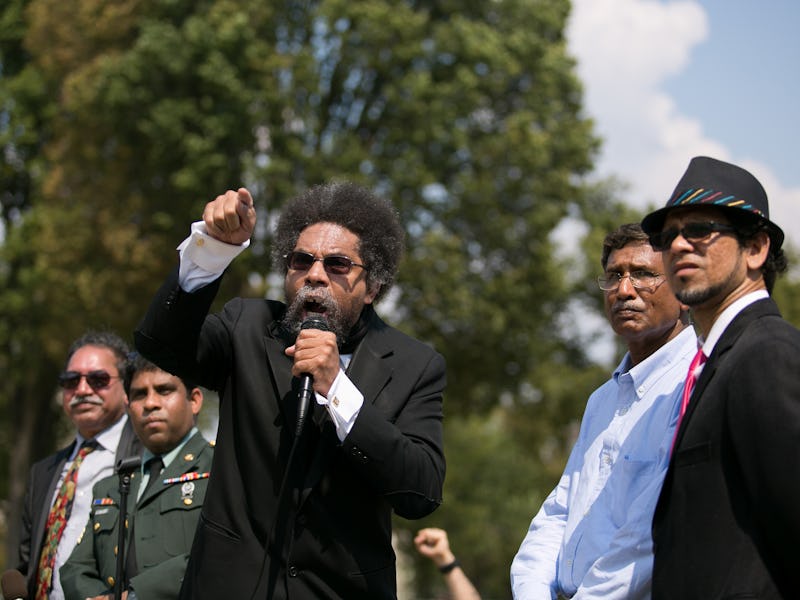Study Finds That Black Academics Feel Obligated to Entertain
Racial stigmatization from peers can impede professional success.

For black academics, presenting to white peers can feel more like entertainment than education, according to new research from Vanderbilt University. After interviewing 33 African-American faculty from U.S. institutions, researchers found that the majority of black scholars have been encouraged by white colleagues to be “more entertaining,” to “lighten up,” and to “tell more jokes.”
Though the findings are disappointing, they’re not exactly surprising, says Dr. Ebony O. McGee, who led the study, which was published in the journal Race, Ethnicity, and Education. The “black as entertainment” ideology has been around since the days of blackface minstrels, she said in a statement to the press. That same racialized objectification may not be as overt now, but it’s still “alive and well,” even in our ivory towers.
Black women in academia also reported that colleagues were preoccupied with their clothing choices and hairstyle and frequently told them to “smile more” and play down their “passion.” Almost all of the scholars interviewed reported “overt racist remarks” toward their presentations.
According to 2013 data from the National Center for Education Statistics, only 6 percent of full-time faculty in post-secondary institutions are black. Presenting lectures is a way for any scholar to obtain or maintain a job in academia, but the fact that black scholars’ job security even partially rests on their ability to entertain drives home the fact that academia is in need of a serious reality check.
The names of the black academics interviewed for the study haven’t been released, but there’s no shortage of black academics turned media figures. This study forces audiences to question whether black academics like Cornel West and Michael Eric Dyson are celebrated for their academic excellence or their ability to inspire an audience. The complicated truth is that it is probably a lot of both. On one level, that’s great: whatever it takes to get people to grapple with serious issues. On another, well, they deserve to be judged on the merits of their thinking.
One commenter on a Vanderbilt University article about the study tried to make the point that pressure to be entertaining isn’t unique to black scholars. “Am I missing something?” she asked.
“You are missing something,” read the response. “[The] entire point of this article.”